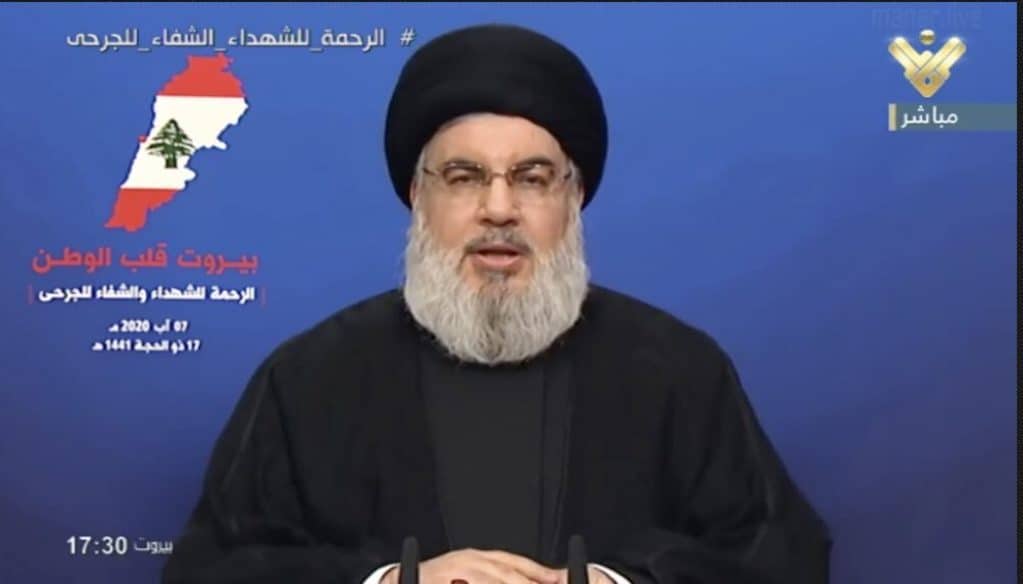Hezbollah’s Secretary General Hassan Nasrallah took to the airwaves Friday to deny the group’s involvement in the Beirut port explosions that killed more than 130 people and injured thousands.
“I want to declare that we absolutely have nothing to do with this. We’ve never had rockets, explosives, ammonium nitrate, not a single bullet stored there. Not in the past, not currently and not in the future,” Nasrallah emphatically stated.
Furthermore, Nasrallah denied the group was active at the port and suggested it knew more about the Israeli port of Haifa than it did Beirut’s port.
“We don’t control the port, we don’t govern the port, we don’t know what’s happening inside the port and the warehouse. Hezbollah is about resistance, we probably know more about Haifa than we know about Beirut,” Nasrallah said.
The statement “we don’t know what’s happening inside the port” is difficult to believe. It is unlikely one of the most powerful paramilitary groups in the world isn’t aware of the activity going on at a major commercial transport hub in its own country. It also counters what was discussed at a United Nations Security Council meeting in 2019, according to a Reuters report.
“Israel found that Iran and the Quds Forces have begun to advance the exploitation of civilian maritime channels,” and that Beirut “is now the Port of Hezbollah” the Reuters report stated.
Additionally, for Nasrallah to defend Hezbollah from accusations of complicity in the Beirut port explosion reveals the growing pressure from the Lebanese public the group finds itself under.
Years of political corruption, economic woes, unsolved assassinations, and the recent COVID-19 pandemic has contributed to the anger of Lebanese citizens.
The trending hashtag in Lebanon after the explosion was “Hang the nooses” (#علقوا_المشانق), a direct threat to the political elite in Lebanon, who the public saw as culpable in the explosion.
“Either they keep killing us or we kill them,” Ramez al Qadi, a well known al Jadeed TV anchor tweeted.
The investigation into the explosion will likely last months, if not years. Given Lebanon’s history, it is unlikely an investigation will be able to determine if Hezbollah had any role – directly or indirectly – in the worst disaster the country has seen in recent memory.








